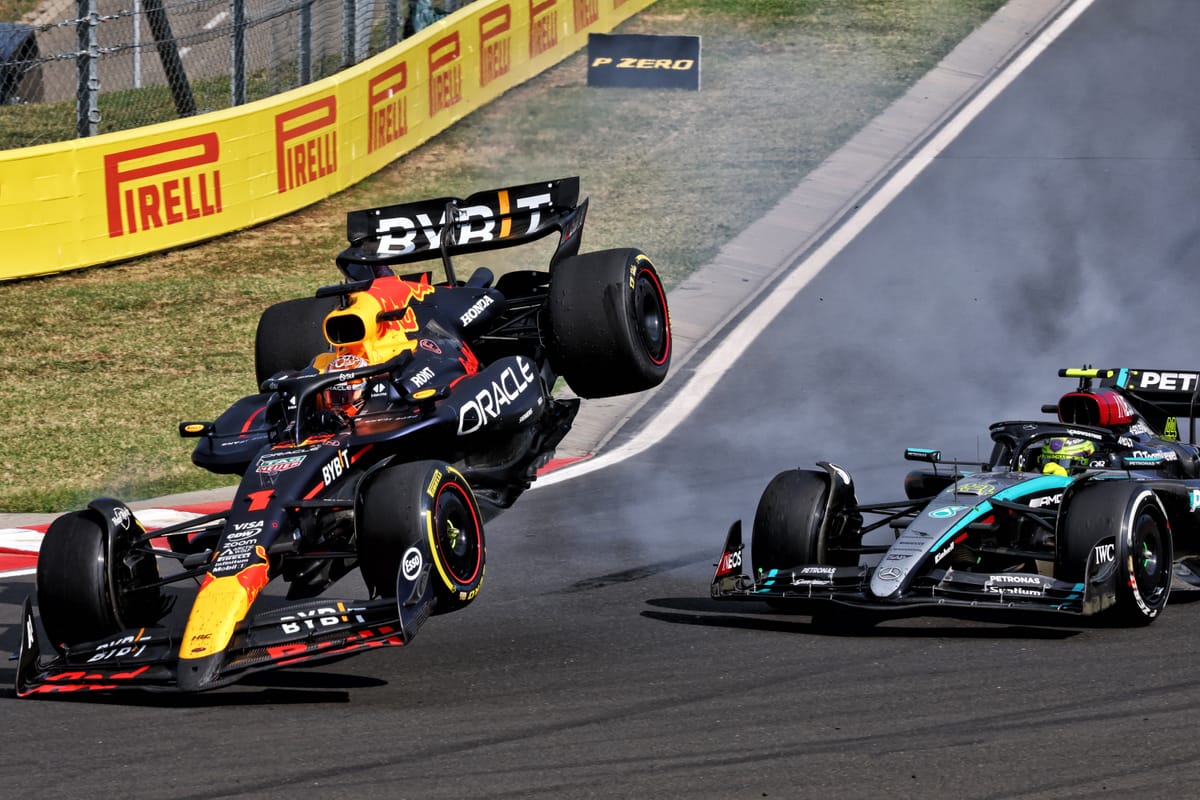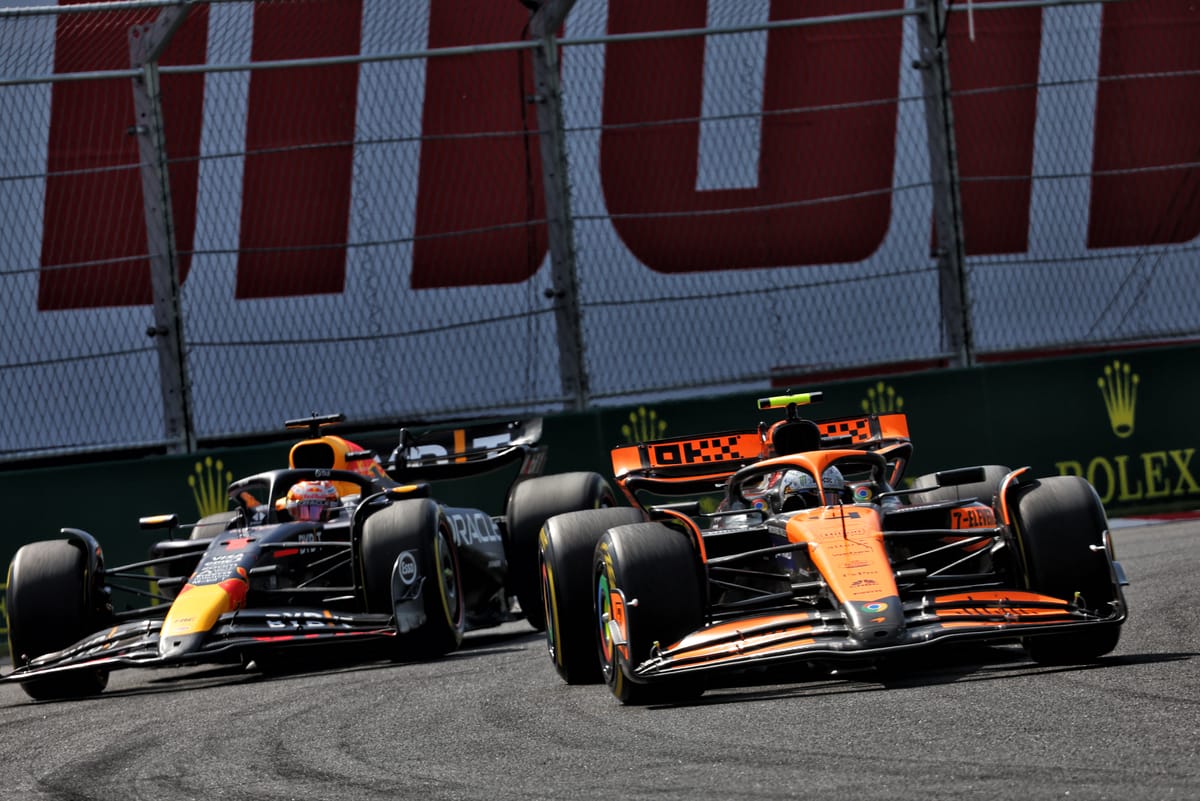

Max Verstappen's fourth Formula 1 title may have slipped from his grasp without a crucial sit-down before the summer break when his tensions with Red Bull were at their peak.
In between the final two races before F1’s August shutdown, off the back of an increasingly tense Hungarian Grand Prix that made Verstappen’s relations with his team seem extremely strained, a debrief took place with senior Red Bull figures.
The aim of the emotional intervention was to combat Verstappen’s growing feeling of isolation when on-track and to assure him that the team knew exactly what was at stake as it risked coming under intense pressure from McLaren in both championships.
Red Bull team principal Christian Horner told The Race: “After Hungary, we sat down and discussed this.
"[We said] ‘look, we're all in it together, we're all in that car with you, mate. You're not on your own. Your pain is our pain. Everybody's feeling it’.”
When Red Bull first started to be challenged after a dominant start to the season, Verstappen could keep that threat at arm's length. And initially, the pressure brought the best out of Verstappen and his team.
Either Verstappen did a superb job to gain track position and then hold on (Imola and Spain) or Red Bull’s superb strategy combined with Verstappen's composure came to the fore (Canada, where Verstappen won, and Britain, where he was second).
Up until mid-season, Verstappen had spent about as much time in clearly the fastest car as he had with one that could be beaten – but had won more often than not, had an 84-point lead over Lando Norris, and had been beaten by him in just two races that both finished.
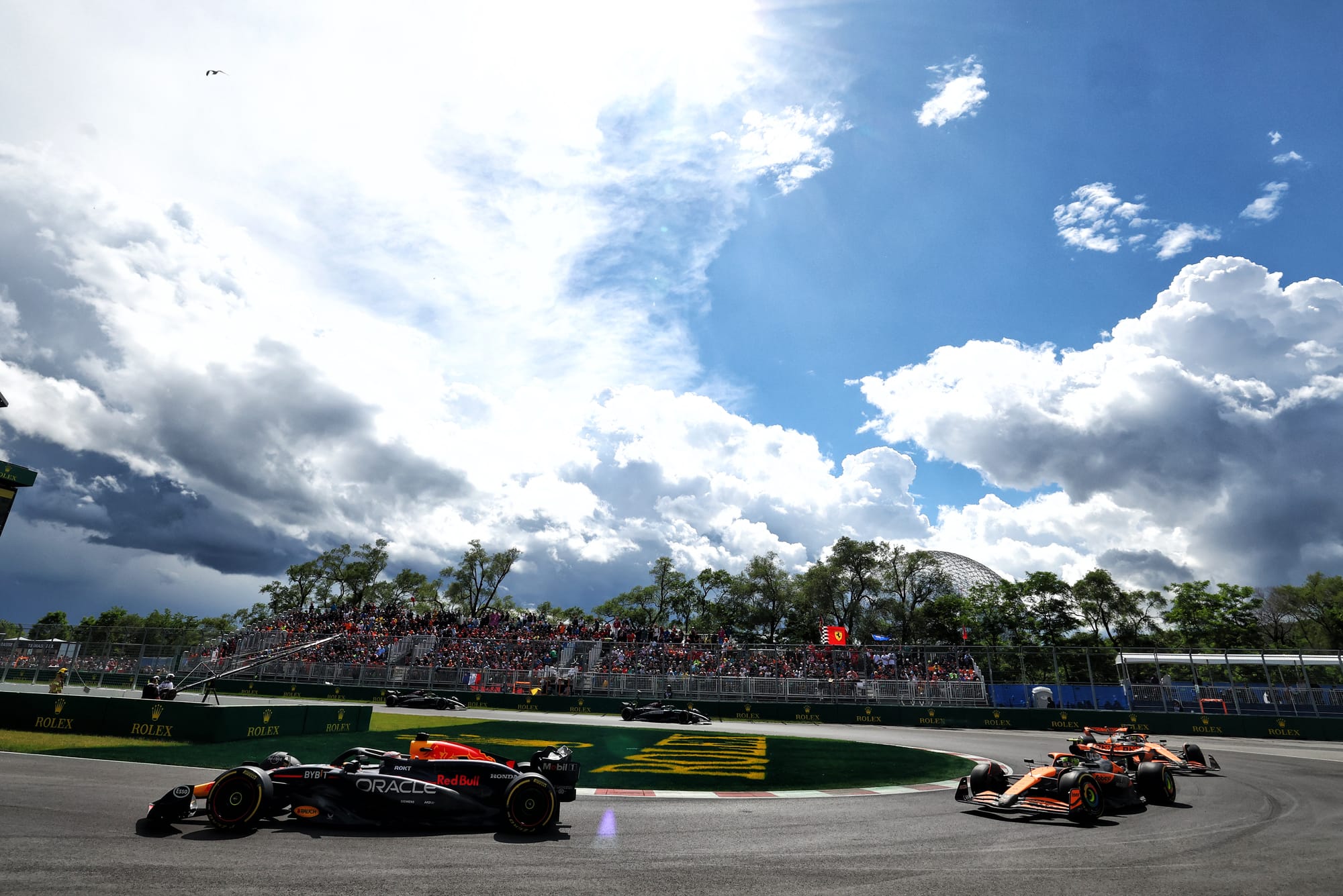
But that run also included the Austrian Grand Prix, where things wobbled for the first time: a dominant sprint race win, dominant pole, and a dominant grand prix until a flawed final pitstop that put Norris back in range and Verstappen under pressure. That led to an increasingly combative fight between the two and the contact that ended Norris’s race.
Verstappen still finished fifth, so was more likely to be nonplussed about the incident. And after the race his ire was directed at his own team for causing itself problems. ‘Normal’ service was resumed the following weekend at Silverstone but tensions flared more dramatically just a couple of weeks later, in Hungary.
Red Bull brought a significant upgrade to the Hungaroring that was expected to bring a lot of performance to the car and redress the balance against McLaren. It was a bold move – a completely different bodywork arrangement meant to re-establish Red Bull’s dominance at high-downforce circuits.
Instead, it flopped. Red Bull was clearly second best to McLaren. The more the race went away from Red Bull, especially once it mistakenly dropped Verstappen into traffic with a strategy he felt needlessly “put me on the back foot”, the more agitated Verstappen got – over the radio, with his rivals, and with his team post-race.
After the warning shot of Austria, this could have been the moment Verstappen and Red Bull went off the rails. It was certainly the point the relationship felt the most fractured – more so than early on in the year, when Horner was embroiled in his own personal controversy, and in-fighting meant Red Bull’s hierarchy was splitting into factions.
Instead, the post-Hungary sit-down was crucial to repairing the foundations.
“He really rose to that challenge, certainly with all the noise on the outside and the scrutiny that was on him and so on,” says Horner.
“I really felt that this year, and particularly post summer break, he stepped up.
“He got really heavily involved in the development direction of the car. He went really above and beyond, went that extra mile with the engineers, spending the time in the factory, working on the sim, looking at the data, really, looking to get a handle on things.”
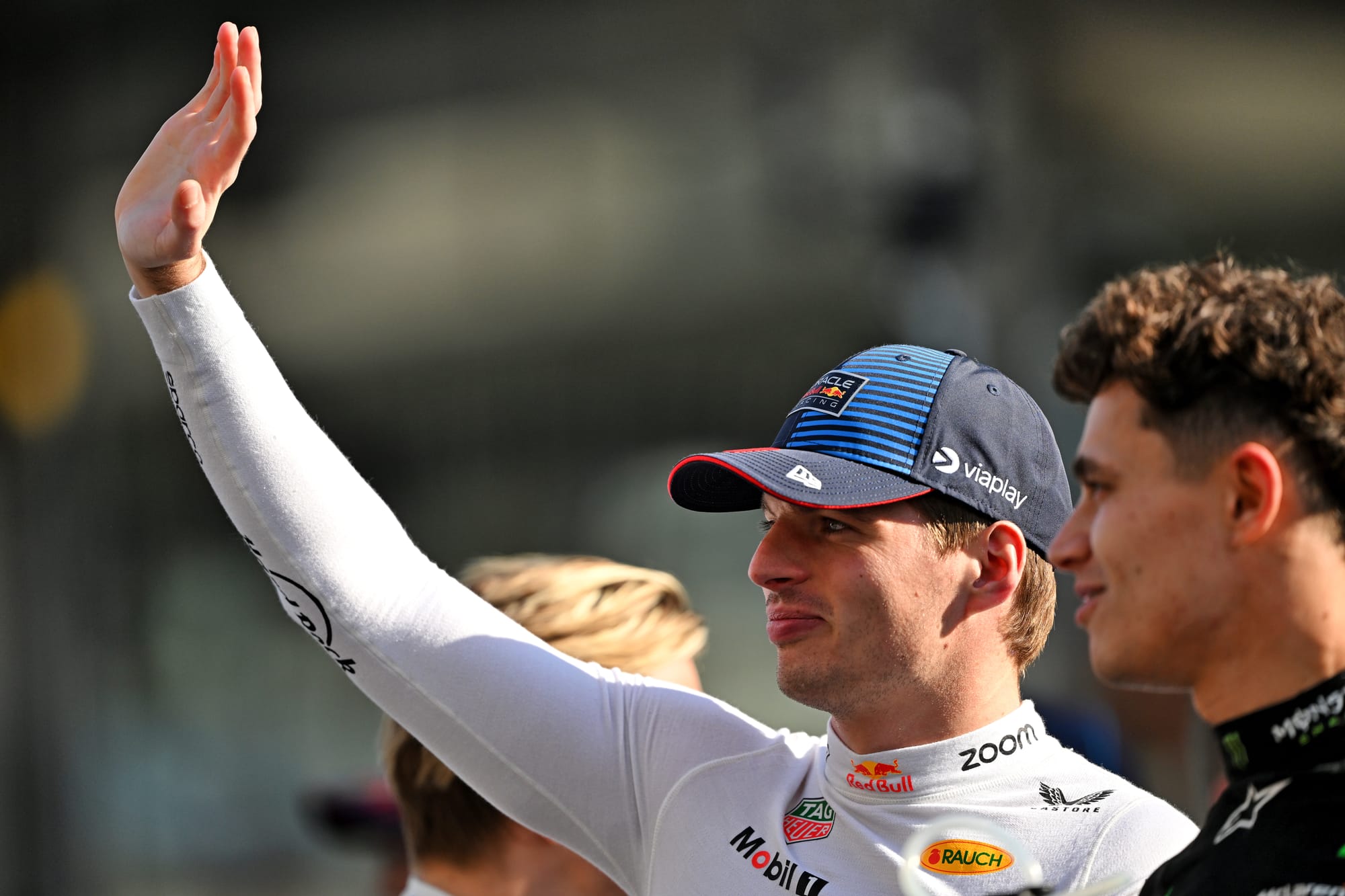
Verstappen admits he doesn’t like doing big speeches off-track. The rousing motivator role isn’t one that he leans into naturally – he tends to lead by doing, anything else feels more performative.
But he knew that Red Bull had been through a demotivating spell and recognised there had to be some give and take in that. It would achieve little if Verstappen remained distant and criticised the team in public every other grand prix weekend.
He knew his role was to be as active a presence in the recovery as he could. He bought into a collective attempt to dig deep, putting in the effort that he expected back from his colleagues – and biting his tongue more.
“What I know is that the team doesn't give up,” Verstappen said after winning the title in Las Vegas.
“There are a lot of very competent people and I really enjoy working with them. I know it's been tough for them as well.
“There was a lot of pressure on them this year. And when you come out of a season like last year, where basically we broke every record and then at one point, you start to struggle with the car and you don't really seem to understand what is going on or what is going wrong, it's important to remain calm and try to fix it.
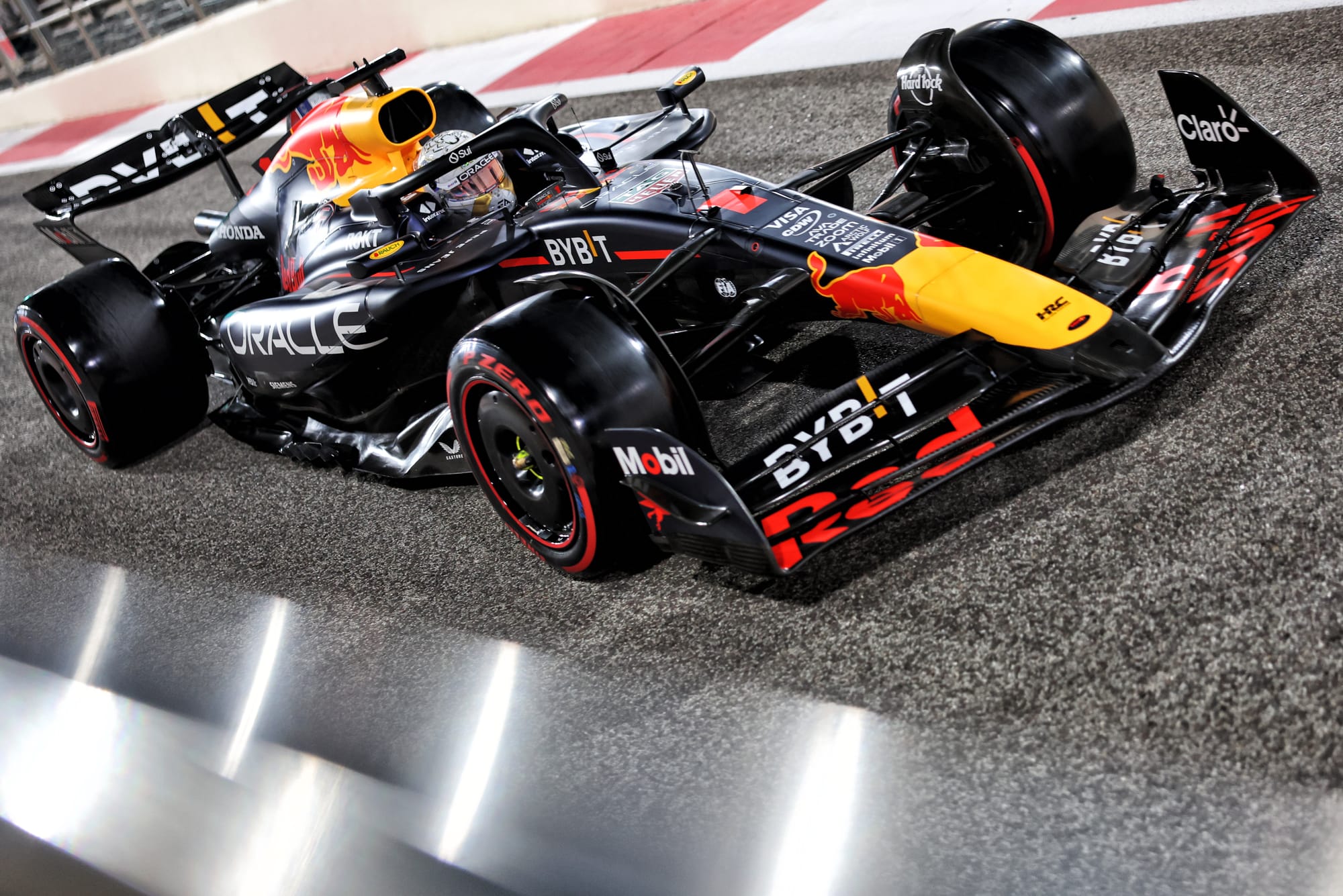
“Every person in the team has their own emotions that you have to deal with. So, in a way, it's also people management because everyone reacts a little bit different to good results or bad results.
“I'm very proud of how everyone stuck together in those very tough races where we came out a bit lost.”
Verstappen was galvanised by the team’s work away from the track, even though there would still be a particularly painful Italian Grand Prix weekend at Monza to suffer before Red Bull’s learnings were complete and its development corrections could be actioned.
He rode through that, and another challenging event in Azerbaijan, which were sandwiched between two excellent damage limitation races in Zandvoort and Singapore – where Verstappen was a strong second to Norris.
By then the rising tension from the first half of the season felt like a distant memory once the focus, collectively, turned to mitigating the problems as much as possible. It obviously helped when some upgrades started arriving to help fix things – Verstappen was even able to start winning races again! – but the outpouring of relief and joy when he won in such stunning fashion from the back in Brazil was about much more than the tribulations of that weekend in particular.
“I’ve never seen him so emotional after a race as in Brazil,” says Horner.
“That was massive, that race.”
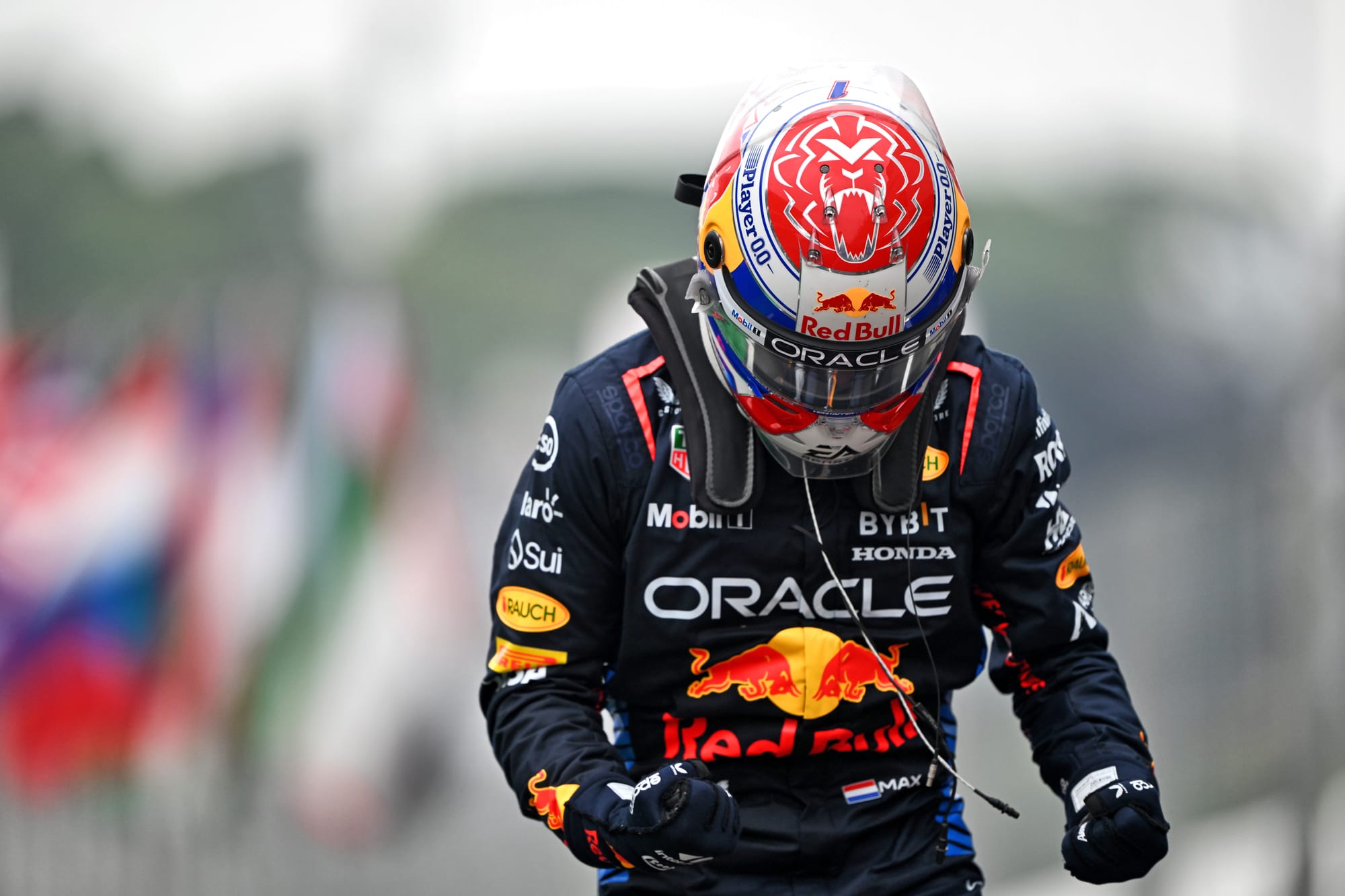
It showed how this season took a toll on Verstappen like few have. Of course, his inaugural title in 2021 was emotionally exhausting for everyone even remotely associated with the fight against Lewis Hamilton and Mercedes. But this was different. It was a mix of a competitive disadvantage, strained internal dynamics, and both driver and team feeling like there was a target on their backs.
“He's not a robot, he’s got a big heart,” says Horner. “He's got a massive heart.
“It’s that passion, it’s that heart, that makes him the person, the driver that he is.”
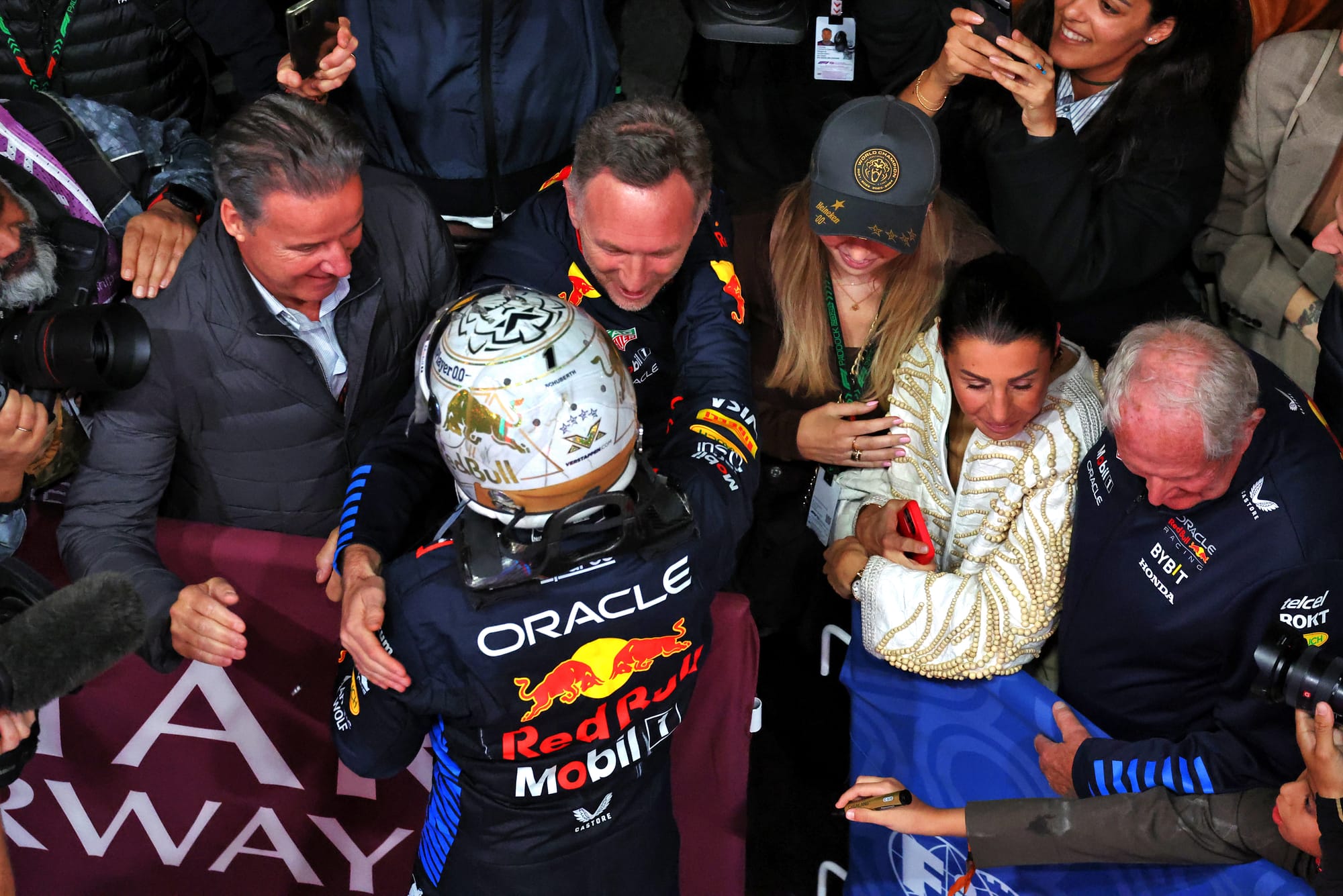
The sense of persecution was evident at times. And an ‘us against the world’ mentality might have been exactly what Verstappen and Red Bull needed. Within the improved relations there was an element of the team wanting to prove to Verstappen that it was doing absolutely everything they could to fight his fight with him.
This meant putting pressure on McLaren at every turn, and trying to find other explanations for why Red Bull’s advantage had disappeared so suddenly around the Miami Grand Prix onwards – in a swing too volatile, Red Bull believes, to be explained purely by in-season development trends. Pushing the FIA to look into flexi-wing exploitation and tyre-cooling tricks shows where Red Bull felt things changed unfairly.
Now the big question is whether Red Bull and Verstappen found a sticking plaster to get the job done in 2024, or if the relationship is now more robust for having gone through what it did. Red Bull clearly thinks it's the latter and Verstappen, after winning the title, was talking in the same vein.
“He loves the team,” insists Horner. “He feels very much part of the team. He has a great relationship throughout the team.
“He's very happy here. He's made the comment on numerous occasions that he likes the uniqueness to potentially only have ever driven for one group in F1.
“Now it’s down to us to provide him with a car capable of doing that.”
Horner believes the bond is “100%” stronger after this season. We won't really have an answer until the first few races play out in 2025, and Verstappen discovers whether he's fighting with one hand tied behind his back again.
“I'm just very happy where I'm at at the moment,” Verstappen said.
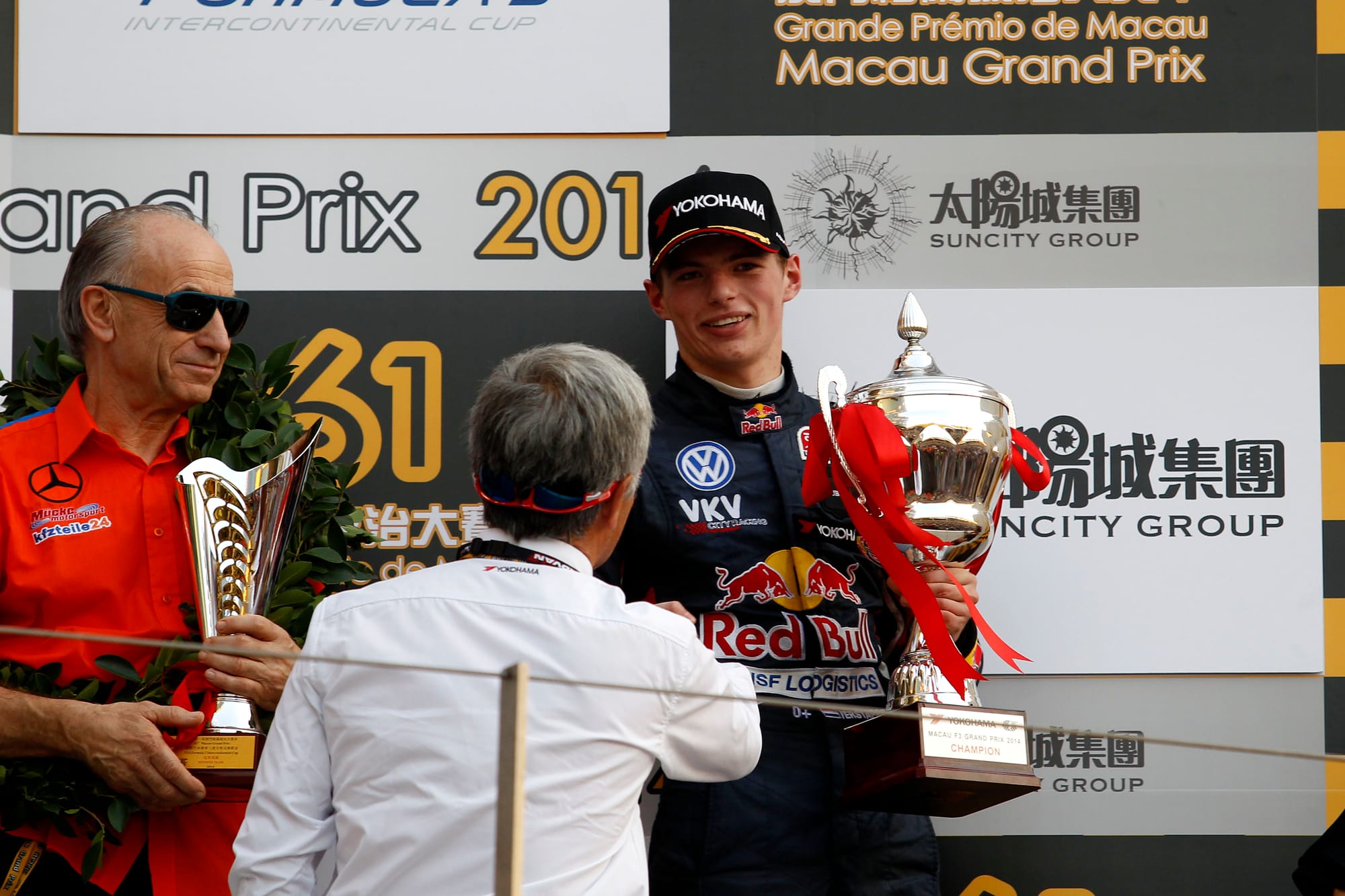
“I'm very loyal to the team. I appreciate what they have done for me from picking me up out of F3 and giving me an F1 seat and then going through all these emotions over all the years with these key people in the team.
“When there are tough times, it's very easy to say goodbye or forget about it or ignore it. But I think it's actually way more important to actually face them and go through it together and deal with it and just try to just move on from there and focus back on the performance side of things and have fun out there.
“That's, in the end, the most important. If you're not having fun, then there's no point to continue.”
